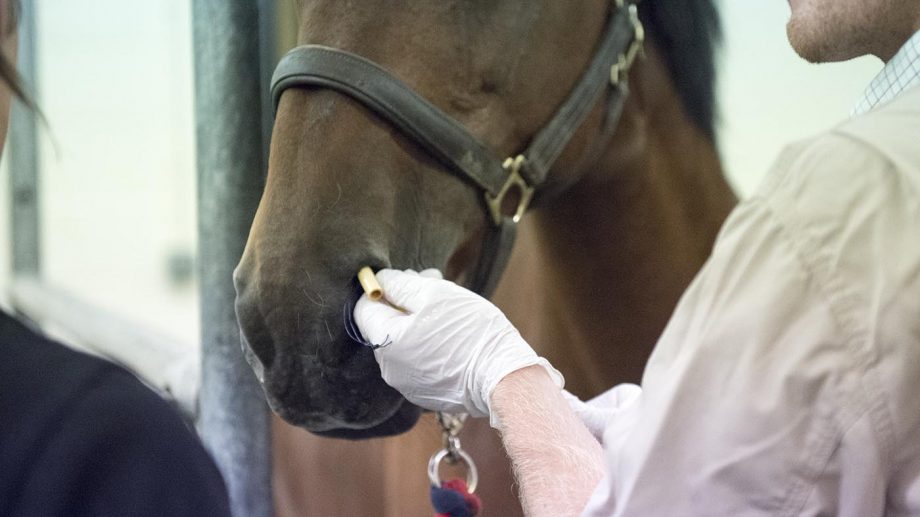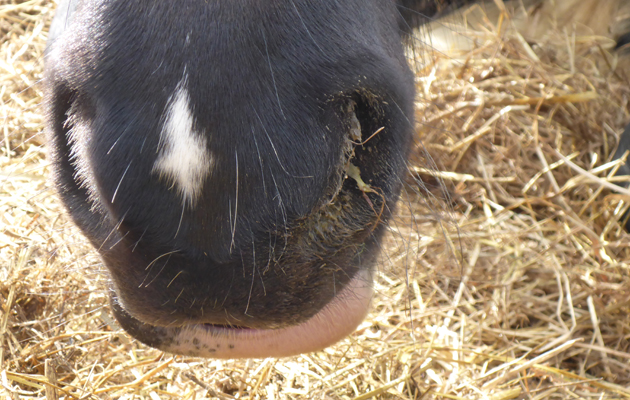In ground-breaking research, the DNA of strangles strains across the world has been analysed to provide information about how the disease spreads. H&H finds out more from some of those who funded and worked on the study
RESEARCH tracking the strangles bacterium across the world has been described as an important milestone, as it reveals more about how the disease spreads and thrives.
The largest ever study of its kind into an equine pathogen, published in journal Microbial Genomics, involved scientists in 18 countries using the latest DNA-sequencing techniques to track streptococcus equi as it caused strangles across the world.
Strangles is the most frequently diagnosed infectious disease of horses, with an estimated 600 outbreaks every year in the UK.
Using standard testing, strands of the bacterium look almost identical, but by analysing the DNA, the researchers could track different variants.
Andrew Waller, of biotechnology company Intervacc AB, told H&H the strains in Europe emerged during World War I, when large numbers of horses were mixing. But, in a similar way to the coronavirus, different strains have developed, some of which could be more transmissible, or more resistant to vaccination.
“If you assume the strains are all the same, you could have problems with disease spreading and causing issues,” Dr Waller said. “By looking at the DNA in detail, we’ve been able to identify where transmission events have occurred.”
Dr Waller said if the key transmission points between horse populations can be identified, interventions can be put in place to prevent this. As an example, he said an outbreak at Redwings had occurred in some newcomer mares who had been screened clear. Analysis showed that the source was in fact another horse, which told Redwings its screening procedures worked, but that biosecurity elsewhere needed to be examined.
“Redwings has led the world in screening for carriers; it was good to prove that process had worked,” Dr Waller said.
He added that he is now looking at “network analysis” in the UK, to find out exactly how the disease is spreading, and on a strangles vaccine, which is hoped to be released this year.
Nic de Brauwere, Redwings’ head of welfare and behaviour, told H&H: “We’re delighted our focus on strangles and biosecurity over the last 30 years has enabled us to contribute to what’s reflected in this important paper. This research is a real milestone in the understanding of how strangles thrives in a mobile population.
“At the sanctuary, we routinely test all new arrivals for strangles and worked closely with the Animal Health Trust to provide samples from strangles-positive horses, which aided their research and formed our contribution to this study. This also improved our own approach to preventing the disease and managing our own outbreak in 2015.
“Redwings, however, was just one of many contributing organisations, which symbolises the team effort required to tackle the spread of strangles and we back the paper’s recommendation for strangles to be included on the World Organisation for Animal Health’s list of infectious equine diseases of international importance.”
Jan Rogers, of the Horse Trust which part-funded the study, told H&H: “It’s a groundbreaking project and the extent of collaboration both on the research and the funding elements demonstrate that so much more can be achieved if we pull together. Understanding the DNA of the bacteria will enable more precise surveillance and treatment to be carried out. This will support advances in global traceability of horse movements for racing, sport, breeding and trade and better health for all our horses.”
You may also be interested in…

Strangles: what is it, how to spot the signs, plus a new vaccine to help protect your horse

Strong evidence in support of new strangles vaccination

Ambassadors sought to help raise strangles awareness and end stigma
The annual Strangles Awareness Week takes place 3-9 May and aims to provide owners, yard managers, vets and equine professionals

Stand up to strangles: ‘bold’ campaign wins national award
Redwings aims to increase awareness of the disease and aid its prevention, with the ultimate goal being eradicating strangles in

Strangles initiative to run online as pandemic highlights biosecurity *H&H Plus*

